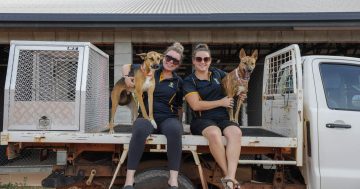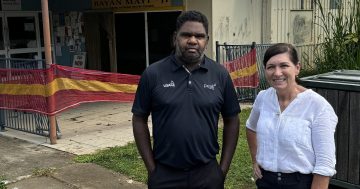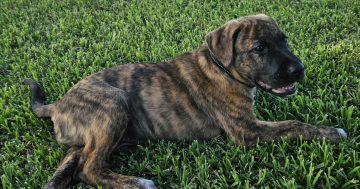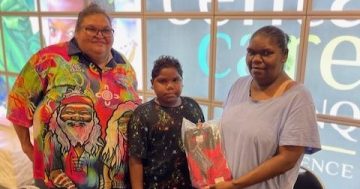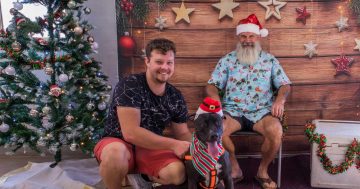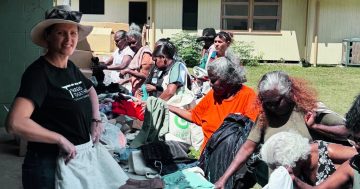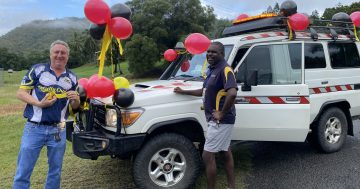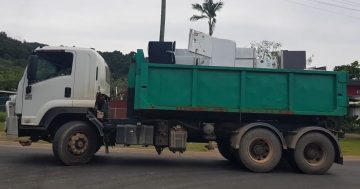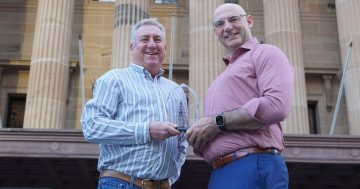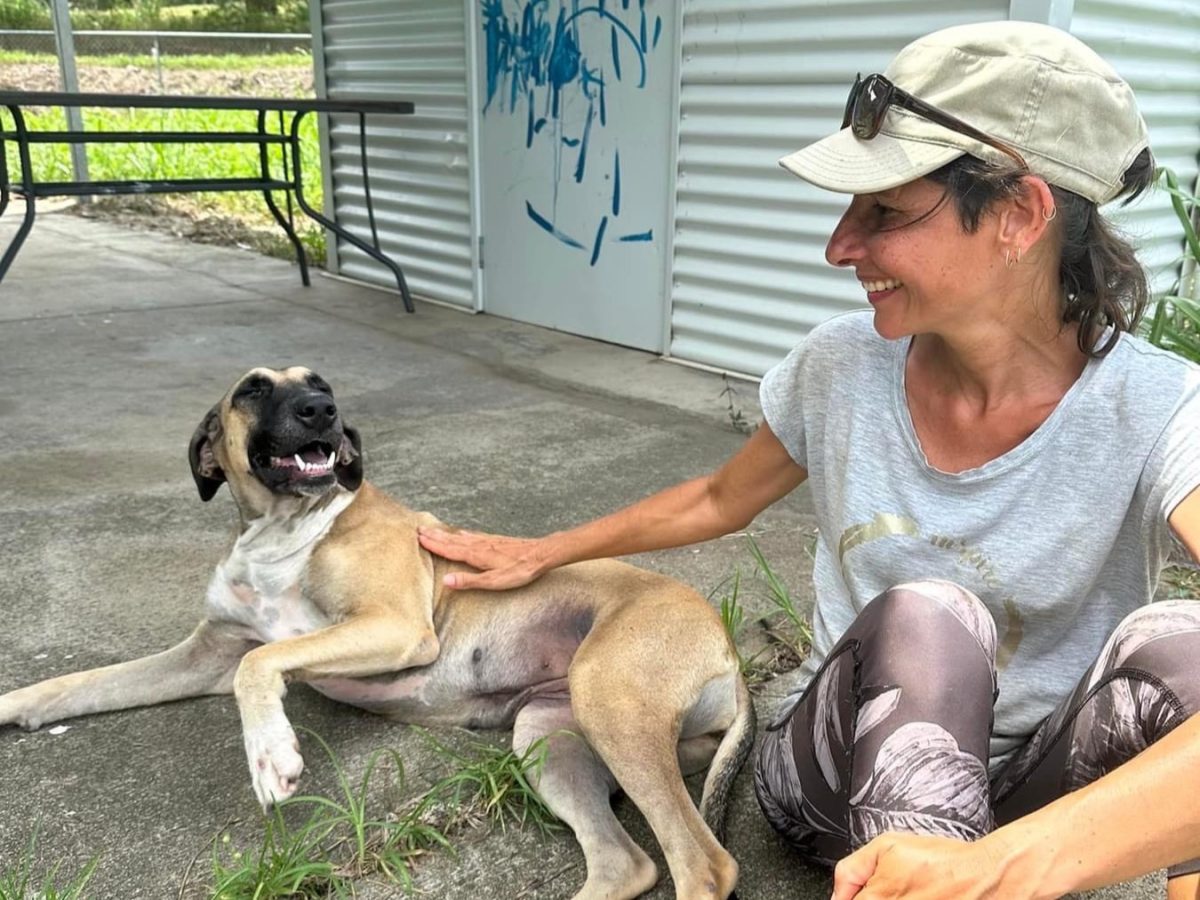
Wujal Wujal Aboriginal Shire Council animal management officer Nikki Gong made sure the dogs left behind in community after the flood devastation were loved and fed. Photo: Supplied.
Bloomfield’s resident animal rescuer will travel to Melbourne next month to share the story of caring for a community of dogs after Tropical Cyclone Jasper flooding forced the evacuation of their owners.
At the National Aboriginal and Torres Strait Islander Environmental Health Conference in May, Nikki Gong will share how dogs were kept safe and fed during a time when roads were cut off and communication was down.
The Wujal Wujal Aboriginal Shire Council animal management officer she said worked with the local vet nurse to bring food, water, medication and love to the dogs left in the community.
“At first, we came by boat, and then we were eventually able to travel in a vehicle, even though the roads were still in a really bad way,” Ms Gong recalled.
“Helen, the vet nurse, was co-ordinating with charities to organise dog food and any other resources.
“There was no water in the community, so we had to bring in drums of water to fill bowls for the dogs.”
She said one of the most important roles was to reassure displaced owners their furry friends would not be abandoned.
“We were able to communicate with some of the owners before they evacuated, and got them to spread the word that we were going to be able to look after the animals until we could work out what was going to happen next,” Ms Gong said.
“I think it was really beneficial that we had that relationship from working in community, and people knew that we were the two that usually look after the dogs.”
She added police stationed in the community after the disaster also helped to provide for the dogs, not only physically, but emotionally as well.
“They came with us most days to carry the bags of food, because sometimes we couldn’t even access some properties by car; there was so much debris on the roads,” Ms Gong said.
“It wasn’t just the food and water; it was the human companionship as well, because the only humans here initially were the police officers.”
As the Wujal Wujal community prepares to begin its return home, Ms Gong reflected on the event, explaining they had to bring supplies in for six weeks before reconstruction work began and they needed a more safe and sustainable solution.
“We managed like that for a period of time until we realised that it was going to be a long time before people started coming back to the community,” she said.
“By then, communication was much easier and we were able to start speaking to owners about where they were at, if they were able to take their dog, or did they have family that could take their dog.
“We worked pretty tirelessly on trying to help families with solutions of where they were going to put their dogs, and the logistics of how we’re going to get those dogs there.”
Ms Gong said the massive effort reinforced the work she was doing in Wujal Wujal for the council.
“There was this amazing moment when the roads became a bit more accessible and some people were able to come and pick their dogs up,” Ms Gong said.
“I love working in community and helping people keep their dogs not only healthy, but happy as well.”
The animal management officer also worked with rescue groups to ensure the dogs that had to be given up were sent to a good home.
“We’ve actually had a couple of our dogs adopted by the police staff that were looking after them in the time we were trying to find solutions,” she said.
“I’m excited to share the lessons learned from a community that has a really solid animal management program [in Melbourne].”
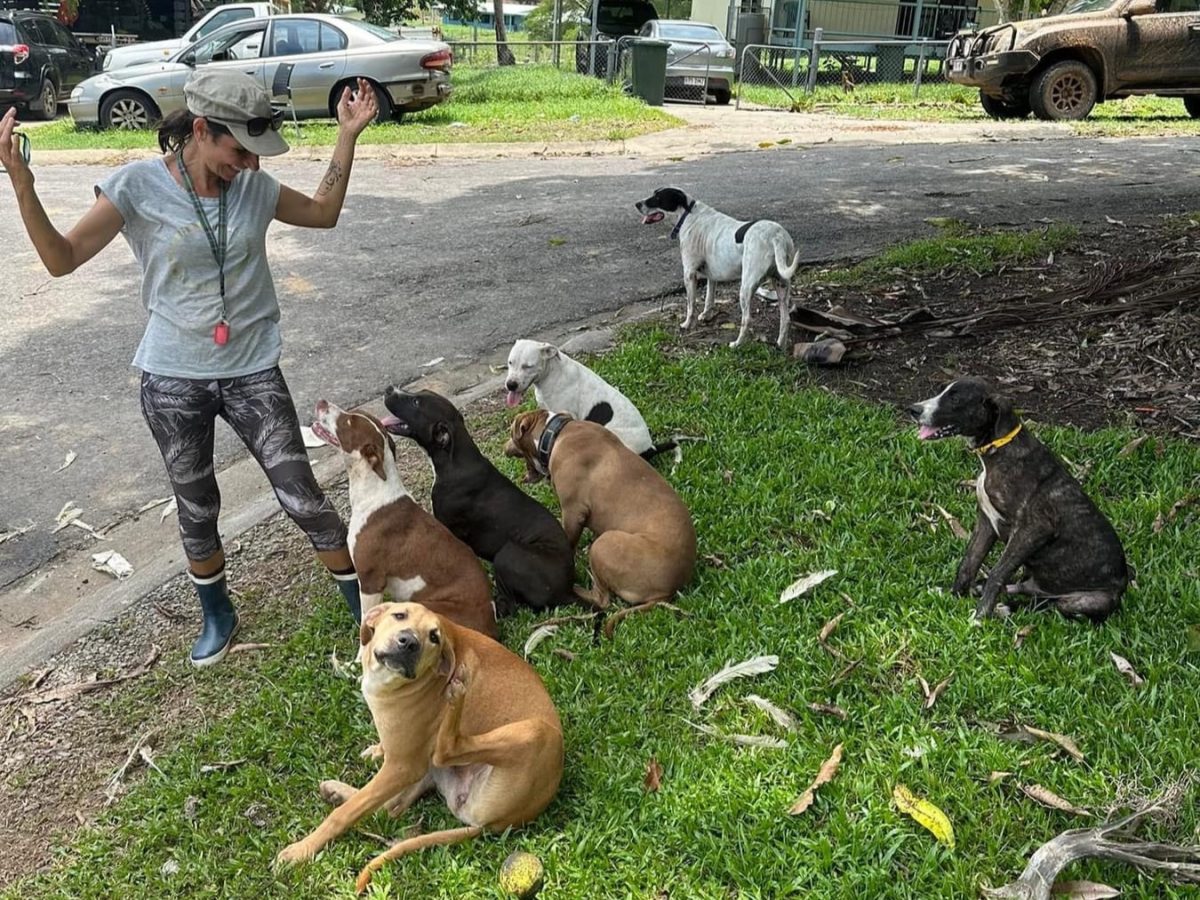
Ms Gong and the local vet nurse assured owners their dogs would be well taken care of following the evacuation chaos. Photo: Supplied.


